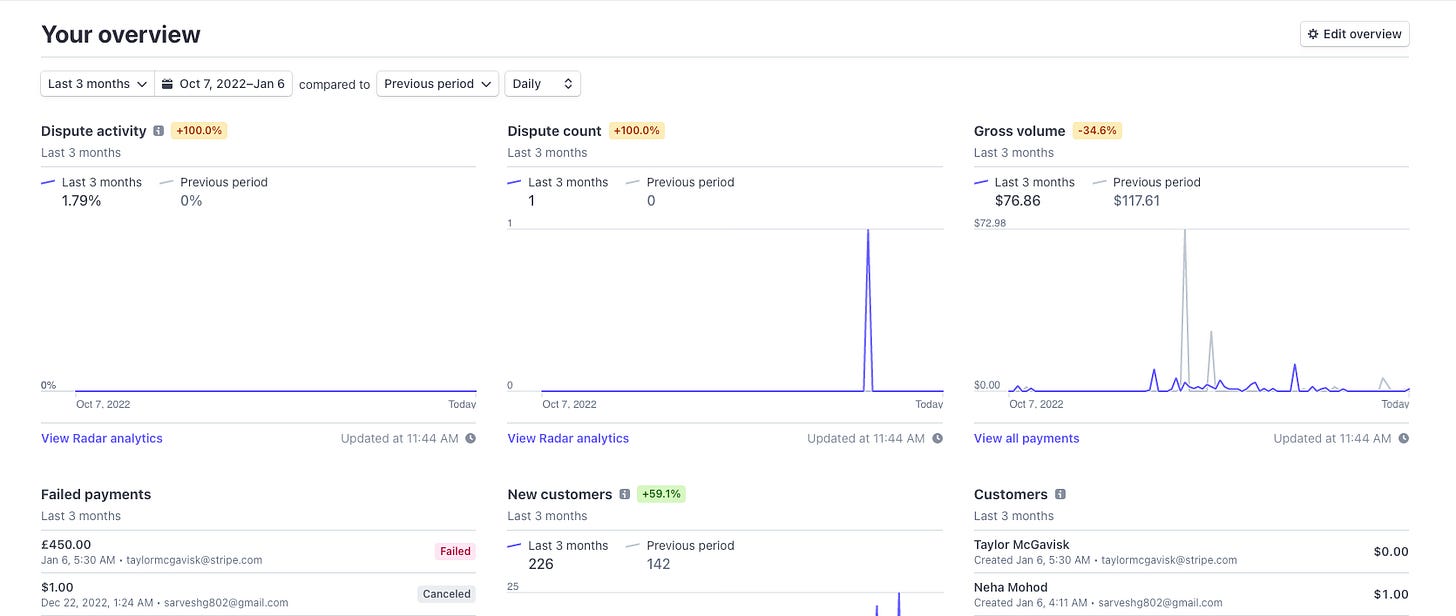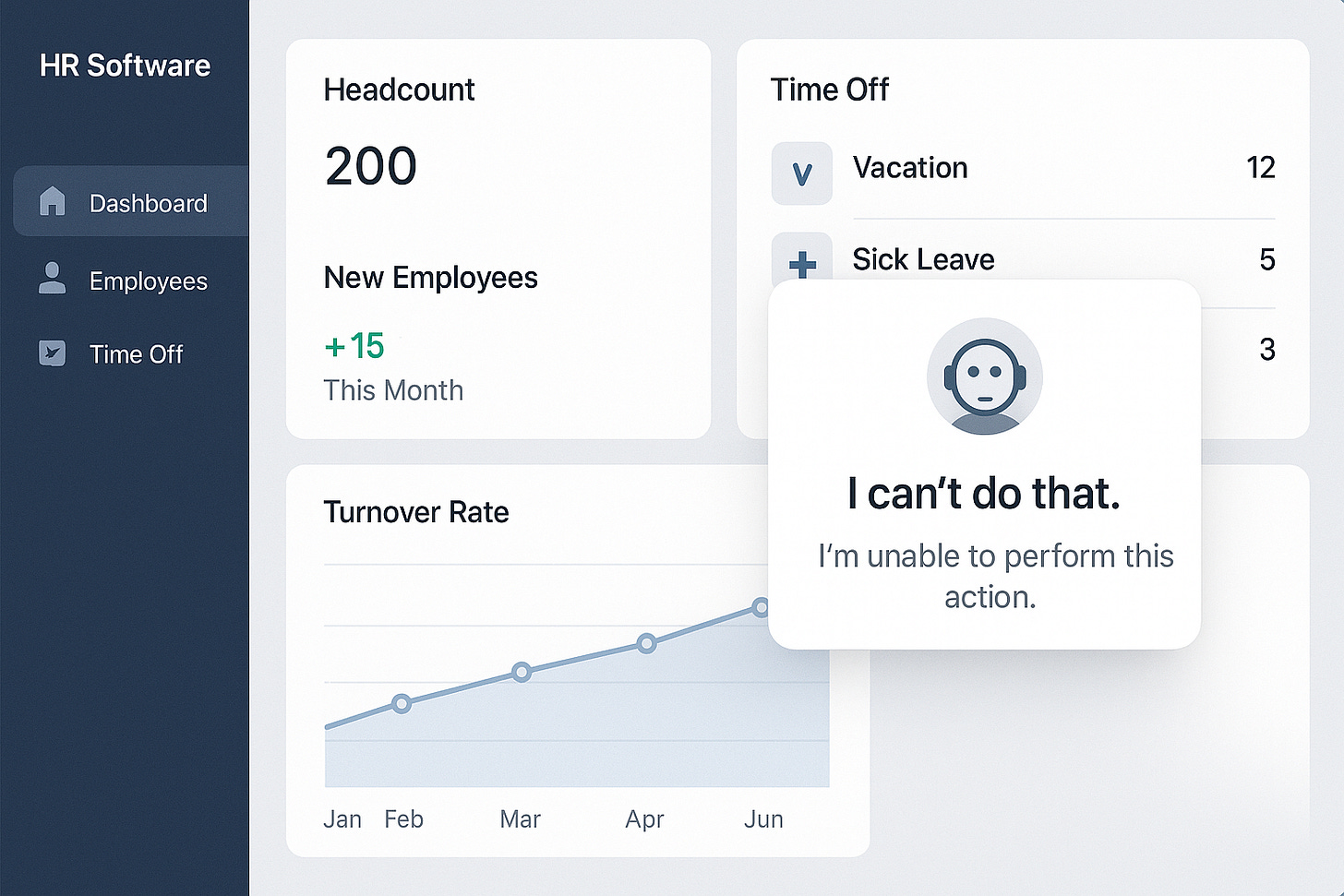Fluid Software
how generative AI shifts power from builders to users and the messy software evolution ahead
Generative AI fundamentally transforms the relationship between software & users.
Before generative AI, software reflected the builder's vision & priorities. Builders controlled everything. They considered user feedback & implemented changes, but the core product always remained their creation. Users simply adapted to whatever was built.
They could barely even influence development through purchasing decisions - buy or don't buy.
Dashboards exemplify this builder-controlled paradigm. Users log in & immediately face a predefined interface. Some dashboards allow minimal customization - adding elements, adjusting date ranges, modifying calculation parameters. Others offer zero flexibility. The underlying insights, calculations & presentation methods remain fixed, unchangeable & limited.
Generative AI shatters these constraints. Users can now extract their data & create precisely what they need. Take budgeting software as an example. Traditional software shows preset spending breakdowns by category. Users see what developers decided they should see.
With generative AI, users can ask questions in plain language: "How have my unexpected expenses changed over the last quarter?" or "Visualize my spending patterns differently than usual."
But this newfound power raises profound questions. Do users actually possess enough agency, curiosity & clarity of thought to utilize this power effectively? Many users don't know what questions to ask or how to frame them. They lack the analytical training to extract meaningful insights.
Perhaps the genie was constrained in its lamp for good reason - structure creates clarity for the overwhelmed mind.
This shift also forces us to reconsider the builder's value proposition.
What was their true contribution all along? Was it genuine insight & expertise packaged into user experiences? Or was it merely artificial constraints we tolerated because alternatives didn't exist? Perhaps builders were selling us predefined paths because that's all technology could deliver, not because those paths were optimal.
Traditional SaaS companies now face existential questions.
Most attempt to integrate AI through awkward compromises - adding chatbots alongside legacy interfaces or creating "AI assistants". These middle-ground approaches almost universally fail because they combine fundamentally incompatible paradigms.
The actual evolution paths will likely be far messier, driven by human psychology & organizational biases.
Consider the Abilene paradox - where groups collectively decide on actions nobody individually wants.
We're already seeing this in "AI washing" - companies racing to add generative features nobody asked for because they believe competitors are doing it.
Most SaaS companies will pursue "AI theater" - superficial implementations that check marketing boxes but create minimal value.
They'll slap chatbots onto dashboards & claim transformation while fundamentally changing nothing. This satisfies status quo bias while creating the illusion of innovation.
Others will create "choice paralysis machines" - dumping AI capabilities into products without thoughtful integration.
They'll abdicate their expertise entirely, telling users "You can ask anything!" while knowing most users lack the training to ask useful questions. This creates an overwhelming cognitive burden disguised as freedom.
A rare few will discover "guided agency" - carefully designed experiences that incrementally develop users' capabilities.
These builders will recognize most users don't want complete freedom; they want better outcomes with appropriate effort. They'll create AI systems that grow with the user, gradually transferring expertise rather than suddenly abandoning structure.
Data hoarding will intensify as companies realize their moats are evaporating. They'll restrict data portability, making it difficult for users to move between systems. They'll claim this protects privacy while actually protecting revenue.
Ironically, users themselves will often resist true empowerment.
We satisfice.
We prefer the comfort of familiar constraints to the anxiety of boundless possibility.
We'll tolerate suboptimal but predictable experiences over optimal but demanding ones.
Builders who understand this psychological reality will thrive where purely rational approaches fail.




